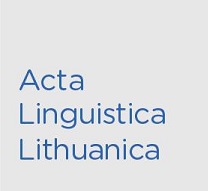Славо-Ираника II: Сложные слова со славянством. *slav-, *slux- : Иран. *śrau̯a-, *śrausa-, *śrū̆ta- (на фоне балтийского и германского происхождения)
Slavo-Iranica II: Compound Words with Slav. *slav-, *slux- : Iran. *śrau ̯a-, *śrauša-, *śrū̆ta- (against Baltic and Germanic Background)
Author(s): Alexandr I. IliadiSubject(s): Morphology, Lexis, Historical Linguistics, Descriptive linguistics
Published by: Lietuvių Kalbos Institutas
Keywords: etymology; derivative; anthroponym; areal; semantics;
Summary/Abstract: The investigation contains the results of a comparative-historical analysis of Iranian, Slavonic, Baltic and Germanic lexical and syntactic units with reflexes of Indo-European root *k ̑leu ̯- ‘hear’, ‘listen’. The formation of compound-words and (hypothetically) formulaic expressions (stable syntactic combinations, expressing ideological semantics) with the mentioned etymon shows structural-semantic parallelism in four linguistic cultures. This parallelism manifests itself in the complete (or partial) genetical identity of the etymological composition of the compared units and in the common organization standards of their cultural semantics, reflecting: 1) understanding of glory as the absolute value in the system of moral relations inside ancient societies (for Iranian, Slavonic and Germanic); 2) cases of specialization (in Slavonic and Iranian) of the original “acoustic” semantics in the direction of the meanings Verba Dicere (‘to glorify’) and their derivatives ‘glory’, ‘glorified’; this semantical shift was widely demanded in the system of anthroponymic motivations. Conclusions as regards the сauses of structural and etymological affinity or semantical and typlogical similarity of compared datas are made.
Journal: Acta Linguistica Lithuanica
- Issue Year: 2023
- Issue No: 89
- Page Range: 39-74
- Page Count: 36
- Language: Russian

